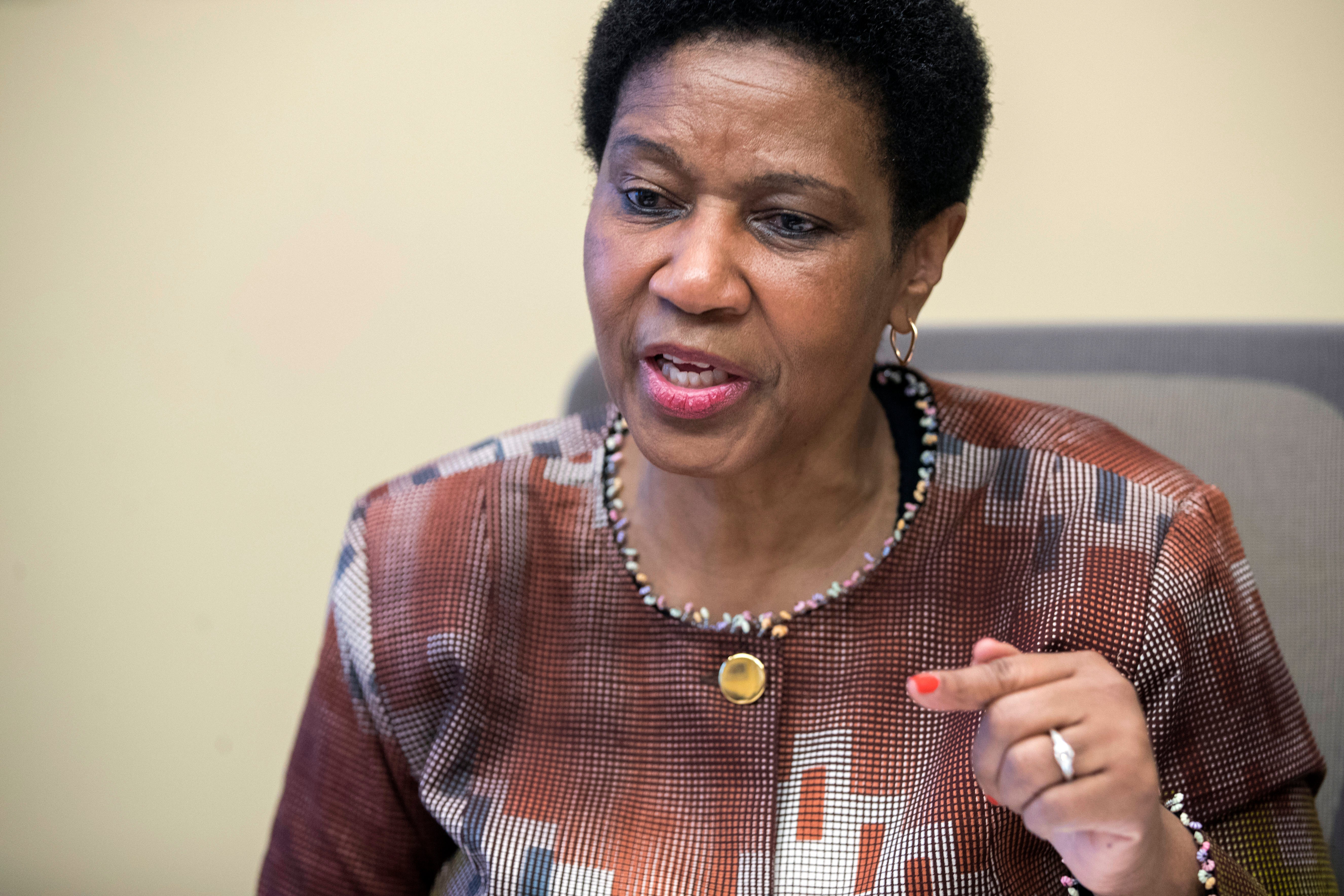UN Women: COVID-19 is `most discriminatory crisis' for women
The head of the U.N. women's agency is calling the COVID-19 pandemic “the most discriminatory crisis” that women and girls have ever experienced

Your support helps us to tell the story
From reproductive rights to climate change to Big Tech, The Independent is on the ground when the story is developing. Whether it's investigating the financials of Elon Musk's pro-Trump PAC or producing our latest documentary, 'The A Word', which shines a light on the American women fighting for reproductive rights, we know how important it is to parse out the facts from the messaging.
At such a critical moment in US history, we need reporters on the ground. Your donation allows us to keep sending journalists to speak to both sides of the story.
The Independent is trusted by Americans across the entire political spectrum. And unlike many other quality news outlets, we choose not to lock Americans out of our reporting and analysis with paywalls. We believe quality journalism should be available to everyone, paid for by those who can afford it.
Your support makes all the difference.The head of UN Women called the COVID-19 pandemic “the most discriminatory crisis” that women and girls have ever experienced on Monday, pointing to women losing jobs far more often than men, a “shadow pandemic” of domestic violence, and 47 million more women being pushed into living on less than $1.90 a day this year.
Emerging from the pandemic, Phumzile Mlambo-Ngcuka said the world also faces more orphans and child-headed homes, an increase in child marriage, 59 percent of women reporting having to spend more time on domestic work since the pandemic began, and a digital gender gap leaving many women unprepared for the future.
She spoke at the opening of the annual meeting of the Commission on the Status of Women whose theme this year is on women's participation and decision-making in public life and combatting violence against women and girls.
Mlambo-Ngcuka, the executive director of the U.N. women’s agency, said the World Health Organization’s latest report shows that the highest rates of intimate partner violence in the past 12 months -- 16% -- was against young women aged 15 to 24.
A report for the commission’s session also underlined that “violence against women in public life is a major deterrent to their political participation, and affects women of all ages and ranks, in every part of the world,” she said.
U.N. Secretary-General Antonio Guterres said every month the toll from violence against women rises -- from sexual abuse to child marriage.
“The damage is incalculable and will resound down the decades, into future generations,” he said.
The U.N. chief said the fallout from the pandemic “has shown how deeply gender inequality remains embedded in the world’s political, social and economic systems.”
Over the past year, Guterres said women leaders are among those who’ve kept COVID-19 transmission rates low and put their countries on tract for recovery while countries with less effective responses to the pandemic “have tended to be those where strongman approaches prevail and women’s rights are under assault.”
But the secretary-general said “looking across the world, we see that women’s voices remain missing from the highest levels of leadership.”
According to the Inter-Parliamentary Union’s latest report released last week, only 25 percent of lawmakers worldwide are women and only 22 countries have a female head of state or government with Europe topping the list.
“At current rates parity among heads of government will not be achieved until 2150,” Guterres said. “That’s right, another 130 years of men making the same kinds of decisions they have made for the past 130 years and more.”
While these new numbers are little changed, UN Women’s Mlambo-Ngcuka said there are gains “to celebrate and inspire us.”
She pointed to the share of women in government in Lithuania increasing from 8 percent to 43 percent, Rwanda leading the world with the largest share of women ministers at 54.8 percent, and the percentage of women ministers in the United States rising from 17 percent in 2020 under former president Donald Trump to 46 percent in President Joe Biden’s Cabinet, “a historic high.”
Despite these positive developments, Guterres said men are dominating decision-making during the pandemic.
“A study of 87 countries found that 85 percent of COVID-19 task forces contained mostly men,” the U.N. chief said.
Guterres stressed that women have the skills and expertise for top jobs, and in many countries they’re graduating from higher education at higher rates than men.
“What we need is not more training for women, but to train those in power on how to build inclusive institutions,” he said. “We need to move beyond fixing women and instead fix our systems.”
Mlambo-Ngcuka called for “big, bold steps” and urged global leaders to make space especially for young women to enter public life.
“We see them on the streets across the world, leading movements even in the face of lethal threat,” she said.